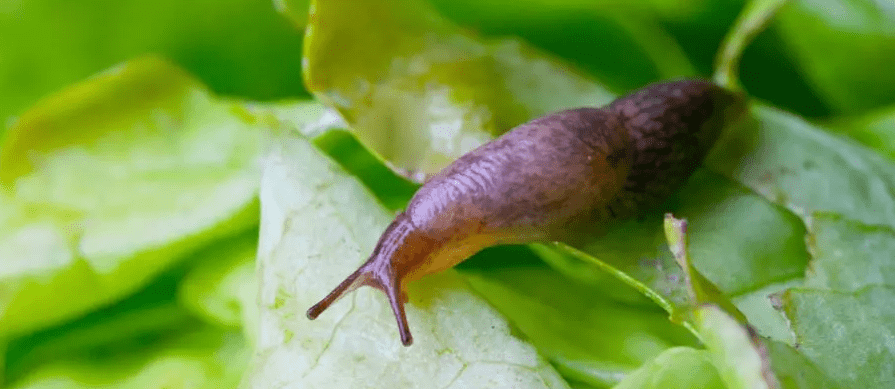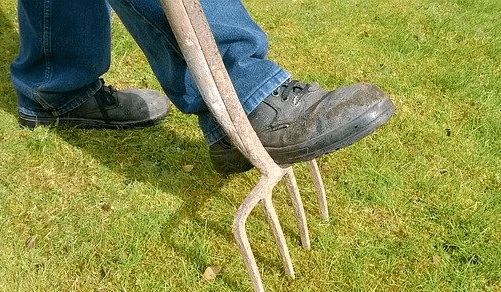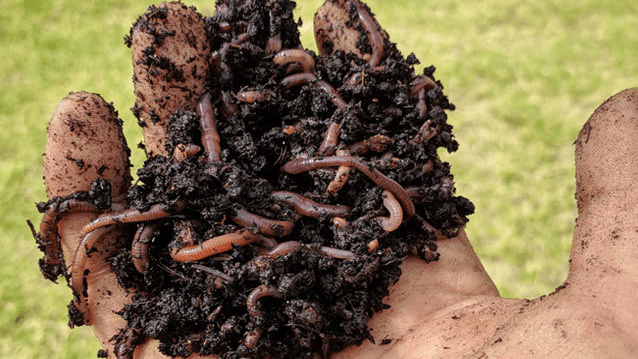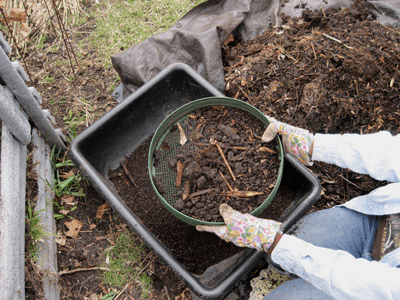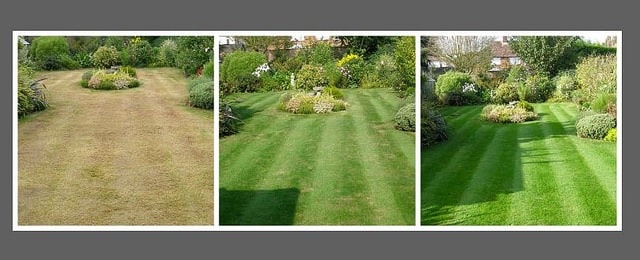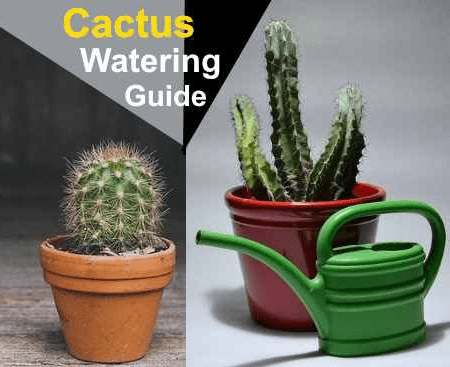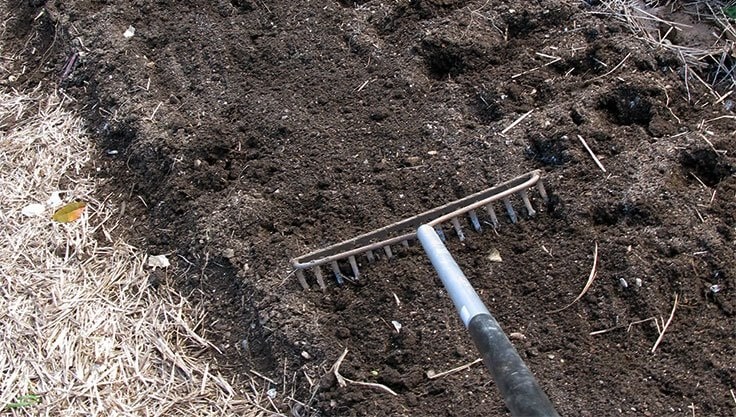Aphids pose a great danger to your garden. The small pests penetrate the leaves with their sucking proboscises and extract the vital plant sap. Occurring in high numbers, the damage is so great that the plants often do not survive the infestation.
To prevent this, you should take early action against the aphid. A popular home remedy is garlic. But is garlic really effective against the aphid and how should you proceed in combating it?
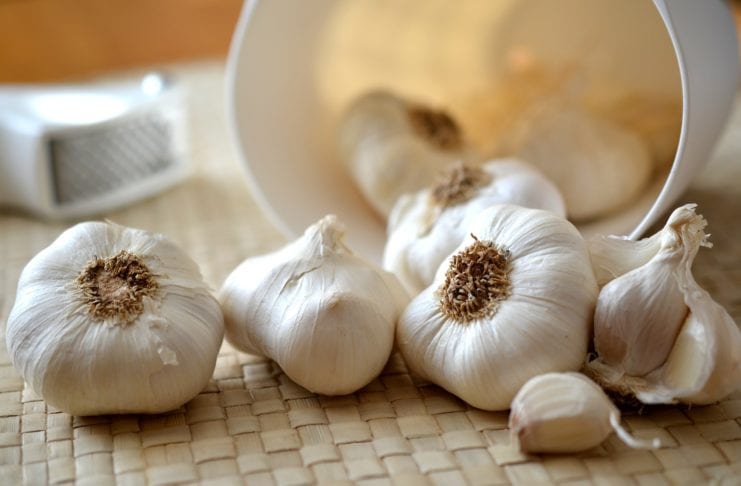
Contents
The effect of garlic
Garlic has a strong odor. This not only takes some getting used to for some people, but also has a repellent effect on the aphid. Responsible for the strong smell are several sulfur compounds, which are found in the root bulb.
Inside the plant, allicin is formed under a chemical reaction. Allicin in turn converts into di- and trisulfides. These provide the strong and typical smell of garlic.
For humans, allicin has a positive effect. It is antibacterial and thus kills dangerous bacteria. Within the bloodstream it provides for a lowering of the lipid value. Thus it is helpful in improving symptoms of arteriosclerosis.
Against aphids, the smell is mainly responsible for preventing the pests from approaching the plants. To get rid of aphids, you have several options.
Spread garlic leaves
If the aphids are present only in small numbers, you can try to distribute individual garlic leaves. The leaves have only a faint inherent odor, but can help prevent aphids from infesting your plants in the first place.
Garlic leaves prove most effective when wrapped directly around the stem or stalk. The emerging smell is not very pleasant for the aphid and it will keep a greater distance.
Stick the garlic clove into the soil
More intense in smell and thus more successful in combating the aphid prove to be the garlic cloves in the ground. This makes it possible to prevent the pests from attacking the plants. However, if the aphids have already settled on the plants, the method is not very promising. Therefore, it is generally considered a preventive measure and should be carried out by you if you have been struggling with aphids in previous years.
The procedure is quite simple. First, peel the garlic clove and then stick it into the soil.
Now you can decide how far you want the garlic clove to stick out of the soil. If it remains relatively open, the smell spreads better. However, this is not very pleasant if you perform this method on an indoor plant. In the apartment, it is advisable to bury the garlic clove quietly deeper into the soil. This will allow the odor to enter the soil, where it will be absorbed by the houseplant through the roots. The plant itself then smells faintly. Fortunately, this is not perceptible in the apartment. However, if the aphid approaches the plant, it will notice the slight smell of garlic and will not settle there.
Garlic decoction
As the most effective method with the garlic to fight the aphid has become established decoction. If your plants are already infested and you want to get rid of the aphid, you can make an effective decoction with simple home remedies.
The following ingredients are needed:
- 10g fresh garlic cloves
- 1 liter of water
- pot
- sieve
- Spray bottle
These means should be found in every household. Now prepare the decoction.
- Chop the cloves finely
- Boil the cloves briefly in hot water
- Let the decoction steep for three hours
- Then strain
Transfer the mixture into a spray bottle
Spray the garlic decoction on the infested plants. The aphid will be so impressed by the smell that it will run away. You should be thorough in your application. Spray the plant not only superficially, but also inside. If possible, all areas should be sprayed by the decoction.
Not all aphids will stay away from the plants after the first application. Some survive or new generations grow up. Therefore, it is advisable to repeat the treatment at regular intervals. Spray the plants every 5 to 10 days. The number of aphids should decrease with each application. Continue the treatment until there are no aphids left.
If you don’t have garlic on hand at the moment, you can use onions as an alternative. These emit an equally intense odor. However, the effectiveness is somewhat lower. As a natural means of control, it is worth a try.
Use garlic to combat the aphid
If you recognize larger green and black spots on your plants, it is probably the aphid. This one populates the native plants to feed on their sap. In large numbers, they attack the leaves and cause considerable damage, making it difficult for the plants to recover.
A natural way to combat the aphid is to spread garlic. The smell is so strong that the aphid prefers to give it a wide berth. Especially as a preventive measure, it is advisable to stick individual cloves of garlic into the soil. This prevents the aphid from appearing in the first place and from spreading.
In case of an acute infestation, spraying a garlic broth is a good idea. The mixture has such a strong odor that the aphid will leave voluntarily. Instead of applying stronger insecticides, try this natural remedy first. In this way, you save the environment and also your wallet.


